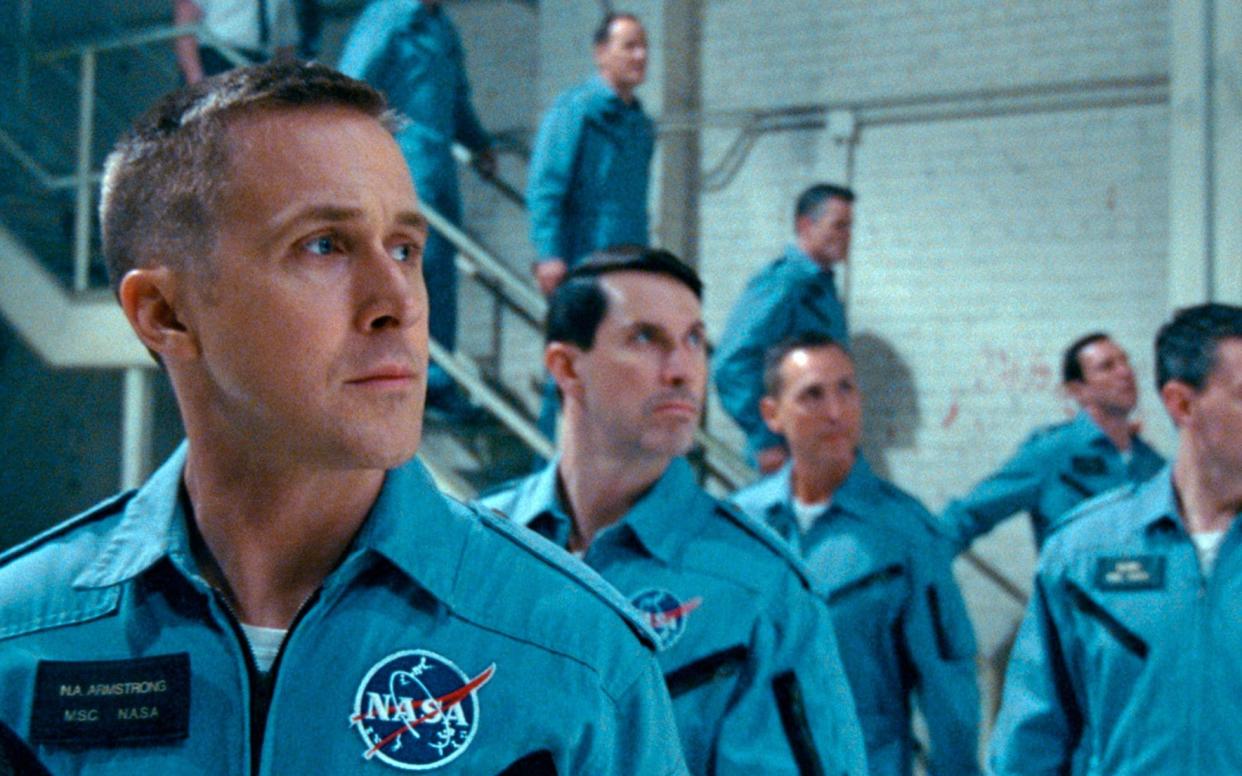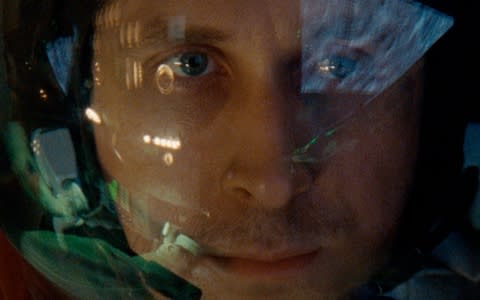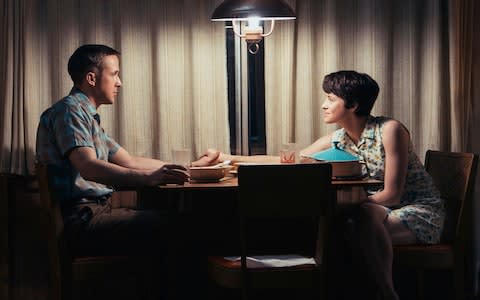First Man review: Ryan Gosling brings Neil Armstrong back down to earth in a thoughtful character study

Dir: Damien Chazelle; Starring: Ryan Gosling, Claire Foy, Kyle Chandler, Jason Clarke, Ciarán Hinds, Corey Stoll. 12A cert, 141 mins.
From La La Land to lunar landing, Damien Chazelle keeps rocketing onward. The latest film from the 33-year-old Hollywood wunderkind retells the final sprint of the Space Race from the perspective of Neil Armstrong, the aeronautical engineer turned NASA astronaut who would go on to win it, by one small but fateful step.
Admirers of Chazelle’s previous work – Whiplash was also his, plus a little-seen musical called Guy and Madeleine on a Park Bench – might reasonably expect a slick, snappy biopic, particularly with the role of Armstrong taken by Ryan Gosling, who waltzed Emma Stone off into orbit in one of La La Land’s most skin-tingling set-pieces.
But First Man, which was adapted by Josh Singer (Spotlight, The Post) from a biography by James R Hansen, is a different proposition: less a millennial take on The Right Stuff than John Cassavetes goes to outer space, with lived-in performances, grainy, handheld camerawork and a colour palette doused in the ochres and umbers of mid-century, middle class American domestic life.
It centres on a ruminative, internalised star turn from Gosling – closer to his work in Drive or Blade Runner 2049 than his romantic leads – whose Armstrong is a reluctant hero and also a man mired in grief, following the loss of his two-year-old daughter Karen to an inoperable brain tumour in 1962.
An early shot of the young girl lying on a hospital bed beneath a strange, tetrahedral radiotherapy rig is the closest First Man comes to science fiction – and the image lingers up until, and even throughout, the film’s staggeringly staged lunar climax.
This is all to say that for the most part, First Man strikes a careful balance between awe and authenticity. Even as Armstrong watches Earth’s rainbow rim rise into view during the film’s opening 1961 test flight, the hull of his X-15 aircraft shudders like a go-kart, while the camera remains hunched in the cockpit, squirrelling itself into any nook it can find.
Likewise, back on the ground, the toll of the mission on the astronauts and their families is given as much weight as the big-picture story of NASA’s desperation to prove itself on the world stage after having been repeatedly outmanoeuvred and humiliated by the Soviet space programme: a present-day resonance is unobtrusively but very intentionally there, should you happen to be looking for one.

The domestic sections of the film occasionally have a bran-flake-like dutifulness to them – though Claire Foy, as Armstrong’s first wife Janet, works hard to make her character something more than the usual fretting-over-the-kitchen-sink stereotype, and seizes on a showpiece scene at NASA HQ, in which she furiously calls the scientists and engineers “boys making models out of balsa wood”. Mu-um!
Further down the bill, performances are just as strong: Kyle Chandler and Ciarán Hinds’s brusque NASA functionaries, Jason Clarke’s fellow astronaut Ed White, and Corey Stoll’s Buzz Aldrin, whom the film paints as both a pain in the neck and a natural at handling the press. Armstrong himself is an introvert and egghead, which perhaps explains why the film has to lean into his personal tragedy as much as it does: it allows us to feel something for a character who lets little else slip.
It also gives an emotional undertow to the moon landing finale itself – which, the film suggests, gives Armstrong the literally unearthly perspective required to process his loss. Hence the much-discussed lack of a triumphal-slash-conventional flag-planting scene: the touchdown on the Sea of Tranquility is the end point of a personal journey that began with Armstrong quietly singing “I see the moon, and the moon sees me” to his daughter seven years beforehand. (Vexillophiles may take some comfort in knowing the flag is still definitely there, and seen in long shot.)

Chazelle has always specialised in virtuoso endings, and First Man’s moon landing is a worthy addition to his portfolio, full of otherworldly wonder but also eerily photo-real.
You can’t not think of Kubrick’s 2001: A Space Odyssey, which opened in cinemas a year before Armstrong took the real-life trip. But First Man tacks carefully around outright homage at this point: that’s covered earlier in a graceful docking sequence, set to a Justin Hurwitz-composed Viennese waltz.
Perhaps Chazelle is Hollywood’s own Neil Armstrong – an unassuming whiz who sees further than most, and whose sure hand and sharp eye brings this ambitious character study smoothly into land.
For more movie news and reviews, please sign up to Robbie Collin's weekly film newsletter here